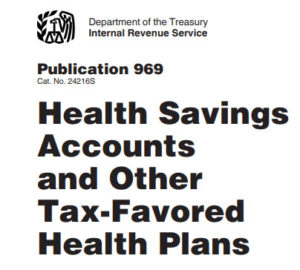Hurricane Facts and Myths
July 1, 2020
Five Things to Know About Commercial Auto Insurance
July 9, 2020
Hello everyone,
This blog post will kick off a new series of posts based on reader and client questions regarding their life and health insurance plans. If you have something on your mind and want to reach out, please contact me at [email protected].
Question of the Day:
My situation is this, I am 52, my wife is 57 and we have a 25-year old daughter. We have the Omnia HSA with my employer as a family plan. How much can we contribute to our HSA? Does it matter who contributes to the plan, and can my daughter set up her own plan?
A)This is a great question and a perfect setup to see how tricky things can be in regards to health insurance and specifically health savings accounts. In a recent article, we covered flexible spending accounts(FSA’s), and an HSA is very similar except that the funds are not use it or lose it.
For this question, we will go right to the IRS regulations to make sure everything is correct. According to the IRS, you may contribute the following.
Health Savings Account Contribution Limits for 2020
- Single Coverage – $3,550
- Family Coverage – $7,100
- Catch up – $1,000 if over age 55
Seems pretty straightforward…
It would seem you can contribute $7,100 + an additional $1,000 as a catch up since your wife is over age 55.
You can actually contribute $15,200 spread over three accounts. I’ll explain.
Since you have a family medical insurance contract, you can contribute at least the $7,100. Since your wife is over 55, she is entitled to the catch up, but she must do this in her own separate account. She can set this account up with any HSA provider. Some I have heard good things about are HSA Bank, Fidelity and Lively HSA.
The last tricky part is that your daughter is also eligible to contribute up to the family amount of $7,100. This is one of those exceptions where the age ranges work out just right. Since your daughter isn’t able to be claimed as a dependent on your tax return, she is able to set up her own HSA. Also, since she is covered by a family contract, she is entitled to contribute the family limit of $7,100.
Why can’t my wife also contribute $7,100?
The IRS puts a combined limit on how much a tax family can contribute so that is why you can only do the $7,100+$1,000 for yourself and your wife.
How long can my daughter contribute?
Since your daughter is 25, she will be reaching the limiting age from your plan at the end of the month she turns 26, or the end of the year she turns 26. Her contribution amount will depend on what happens at that point and whether or not she continues to be on a HSA qualified insurance plan. This can go a lot of different ways, but assuming she is still on the plan, she will be able to do the whole $7,100 or a pro-rated amount depending on when she disenrolls or changes to her own policy.

 Get a Quote
Get a Quote


